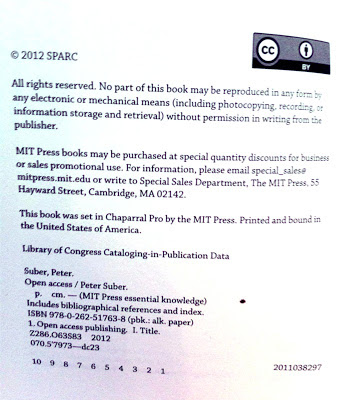 |
| Power refugees at Montclair Public Library |
During my month-long tour telling people about Unglue.it, I've been challenging librarians to start thinking of themselves as connectors, not collectors. In an era of information abundance, library systems and processes that focus on managing an inventory of scarce resources are becoming less useful. The ability to connect a library user to the right information is becoming correspondingly more important.
Here's a crime scene we need to eradicate. A student comes into the library with a device, and asks for Moby Dick. It's been assigned reading, so all the print copies are checked out. Does the library have it as an ebook? Too often, there's no Moby Dick ebook listed in the library's catalog. The library depends on a commercial service to serve ebooks to its users, but the annotated ebook of Moby Dick that the library has licensed is checked-out. "Sorry, we don't have it" the student is told.
This should NEVER happen. Melville's Moby Dick: or The Whale belongs to all of us. Project Gutenberg has an excellent version, in formats that work on just about any device. But because it's free, no one has a monetary incentive to make that connection.
The barriers that libraries have put in place that prevent them from making use of open-access ebooks are mostly not intentional, but it will take some work to make them go away; it's something I've been working on since the September release of the unglued edition of Oral Literature in Africa. I've been talking to the library automation and ebook platform vendors, who I know from my years in the library technology business. Without exception, the people I've talked to are enthusiastic about supporting unglued and other open-access ebooks, but there are lots of barriers. Their systems have been hard-wired to assume that library ebooks will always have digital rights management, or can only be used one user at a time. These restrictions are incompatible with the Creative Commons license we're using for unglued ebooks.
There's not much awareness of the no-DRM provisions of Creative Commons licenses, but it's there, in section 4(a):
When You Distribute or Publicly Perform the Work, You may not impose any effective technological measures on the Work that restrict the ability of a recipient of the Work from You to exercise the rights granted to that recipient under the terms of the License.This clause also serves as a barrier to commercial use by people other than the rights holder, even for the licenses that allow commercial use. For example, the Kindle store automatically applies DRM, so unless you have permission from the rights holder, you can't sell someone else's Creative Commons licensed ebook in the Kindle store.
It will take some time and a lot of work, but eventually the library barriers to Open Access ebooks will fall. But until then libraries need to ask their vendors to give these changes a high priority. Libraries that are investigating new systems for ebook distribution need to add requirements in their RFPs for serving open access ebooks along side print and pretend-its-print books.
 |
| Hurricane Roll - by Tony |
Connections can occur in many ways. Today, I'm connected my laptop power at the library along with more than 254 other refugees deprived of power and internet by Sandy. I know it's more than 254 because my laptop couldn't get an IP address on the WiFi. So I went to the sushi bar/cafe down the street, connected to the wifi, and ordered a "Hurricane Roll". And clicked "publish".







